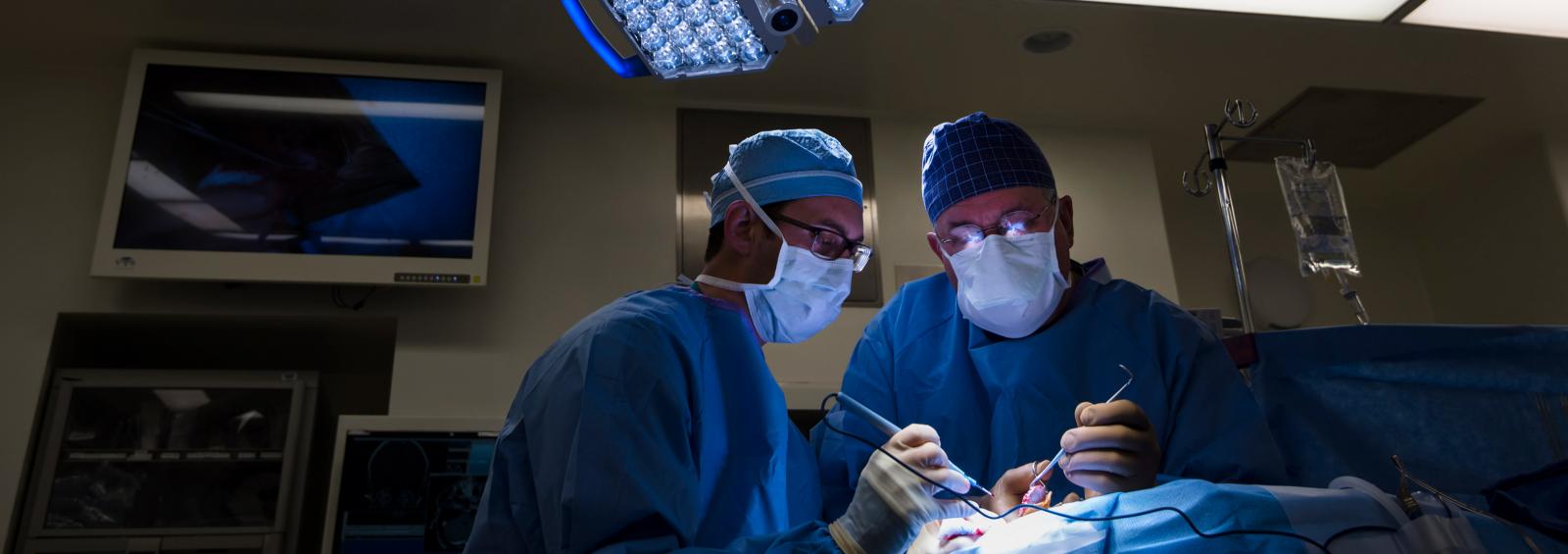Maintaining Your Voice: How a Voice Specialist Can Improve Disorders
Maintaining Your Voice: How a Voice Specialist Can Improve Disorders
Blog Article
Exploring the Field of Otolaryngology: What to Expect When You Consult an ENT
Otolaryngology, frequently referred to as ENT, incorporates the medical diagnosis and treatment of throat, nose, and ear problems. For those experiencing related concerns, consulting an ENT expert can provide clarity and relief. Comprehending what to anticipate during such examinations is vital for effective communication and treatment. This review will certainly lay out essential elements of the ENT experience, including typical reasons for visits and the procedures associated with medical diagnosis and therapy.

Understanding Otolaryngology: An Overview
Otolaryngology, frequently referred to as ENT (Ear, Nose, and Throat) medication, is a customized branch of medication that concentrates on the medical diagnosis and therapy of conditions impacting these crucial locations of the body. This field encompasses a large variety of disorders, including those associated to hearing, equilibrium, respiratory function, and speech. Otolaryngologists are educated to handle both surgical and clinical treatments, using innovative strategies and modern technologies. Their experience expands beyond typical ailments, resolving problems such as allergic reactions, sinus infections, and hearing loss. Additionally, they play a crucial function in the management of head and neck cancers cells, supplying complete care tailored to individual client requirements. On the whole, otolaryngology continues to be vital for maintaining health and high quality of life in afflicted people.
Typical Reasons to See an ENT Specialist
Several individuals seek the know-how of an ENT professional for a range of factors, mirroring the varied nature of conditions that affect the nose, ear, and throat. Common issues include chronic sinusitis, which usually leads to consistent nasal congestion and facial discomfort. Allergies and their linked signs, such as sneezing and itching, additionally motivate visits to these specialists (ENT Doctor). Hearing loss, whether progressive or unexpected, is one more substantial reason for appointment. On top of that, individuals might seek assessment for throat problems, consisting of relentless hoarseness or swallowing difficulties. Sleep apnea, identified by interrupted breathing during rest, is often addressed by ENT specialists. Each of these problems highlights the importance of specialized treatment in managing intricate ENT-related health issues
Planning for Your ENT Visit
When planning for an ENT appointment, it is necessary to collect pertinent info and consider any details worries. Individuals must compile a detailed case history, consisting of previous ear, nose, or throat problems, surgical procedures, and existing medications. Documenting signs and symptoms-- such as duration, extent, and regularity-- can provide beneficial insights for the ENT expert. Additionally, individuals must prepare a checklist of concerns they desire to ask, guaranteeing that all problems are resolved during the visit. Bringing along any type of pertinent medical records or test outcomes can even more help the ENT in recognizing the client's problem. Patients ought to confirm their visit information, consisting of day, time, and area, to reduce any final complication. Correct prep work can enhance the effectiveness of the examination and result in much better results.
What to Anticipate Throughout the Examination
As the examination starts, the patient can expect to engage in an extensive discussion with the ENT specialist concerning their signs and case history. The specialist will certainly ask about the period, regularity, and severity of symptoms such as hearing loss, nasal blockage, or sore throat. In addition, the person's previous clinical conditions, drugs, and any type of appropriate family background will be assessed, aiding the specialist in creating a total understanding of the individual's health. The ENT may also read this post here inquire about lifestyle variables, such as exposure to toxic irritants or allergens. This open discussion develops a structure for the examination, guaranteeing that the person's concerns are addressed and setting the stage for any type of needed evaluations or referrals for therapy.
Diagnostic Examinations and Treatments in Otolaryngology
A variety of analysis examinations and treatments are crucial in otolaryngology to accurately review and detect conditions affecting the nose, throat, and ear. Usual examinations include audiometry, which determines hearing feature, and tympanometry, examining center ear stress. Nasal endoscopy enables visualization of the nasal flows and sinuses, while laryngoscopy examines the throat and singing cords. Imaging methods, such as CT scans and MRIs, supply thorough sights of head and neck structures. Allergic reaction testing might likewise be carried out to identify triggers for sinus or respiratory problems. These diagnostic tools make it possible for ENT professionals to establish a comprehensive understanding of individuals' conditions, making sure tailored and efficient management plans. Appropriate medical diagnosis is necessary for successful treatment outcomes in otolaryngology.
Treatment Choices Supplied by ENT Specialists
ENT professionals use a selection of therapy choices tailored to attend to certain conditions impacting the nose, ear, and throat. These therapies vary from traditional approaches, such as medicine and way of living adjustments, to even more invasive procedures. As an example, allergic reactions might be managed with antihistamines official source or immunotherapy, while chronic sinusitis might call for nasal corticosteroids or sinus surgical procedure. For hearing loss, ENT professionals usually suggest listening device or surgical interventions like cochlear implants. In cases of throat conditions, alternatives can consist of speech therapy or operations to eliminate obstructions. Additionally, they might supply guidance for managing rest apnea, consisting of using CPAP tools or surgical interventions. On the whole, the objective is to improve clients' top quality of life with individualized care and efficient treatment methods.
When to Seek Follow-Up Care With an ENT
Identifying when to look for follow-up treatment with an ENT professional is vital for handling ongoing signs and symptoms or issues associated with throat, ear, and nose conditions. Individuals must think about arranging a follow-up appointment if signs linger in spite of initial treatment, such as chronic ear discomfort, nasal blockage, or throat pain. Modifications in hearing, equilibrium concerns, or unusual nasal discharge might additionally require further evaluation. Additionally, if an individual experiences side impacts from prescribed medications or has undergone a surgery, follow-up treatment is essential to keep an eye on healing and deal with any type of problems. Prompt appointments can assure reliable management of conditions, protect against potential difficulties, and provide peace of mind regarding one's health and wellness. Seeking follow-up treatment advertises positive wellness administration in otolaryngology.
Frequently Asked Concerns

What Credentials Should I Search for in an ENT Expert?
When seeking an ENT professional, one ought to look for board certification, pertinent experience, and strong person reviews. In addition, reliable communication abilities and a thoughtful technique can significantly enhance the total treatment experience.
Exactly how Do I Select the Right ENT for My Needs?
Selecting the appropriate ENT expert includes examining their qualifications, experience, hearing aids for pensioners and client evaluations (Otolaryngology). It is necessary to contemplate their communication design and approach to treatment, ensuring they align with the person's specific health and wellness demands and preferences
Exist Any Kind Of Risks Related To ENT Procedures?
The threats related to ENT procedures may consist of infection, blood loss, anesthetic complications, and potential damages to bordering frameworks. Clients need to talk about these risks with their doctor to comprehend individual concerns and guarantee notified choices.
Just How Can I Take Care Of Anxiety Prior To My ENT Visit?
To manage anxiety prior to a consultation, individuals can practice deep breathing exercises, visualize positive outcomes, prepare inquiries beforehand, and seek assistance from buddies or family, fostering a sense of peace of mind and peace.
What Should I Do if I Experience Adverse Effects From Therapy?
If negative effects from therapy occur, the person must immediately report them to their medical care service provider. Adjustments to treatment or additional interventions may be necessary to guarantee security and effectiveness in handling their condition - ENT Clinic. As the assessment begins, the person can anticipate to engage in an extensive discussion with the ENT specialist regarding their signs and symptoms and clinical background. These analysis devices allow ENT professionals to establish an extensive understanding of people' conditions, making sure tailored and efficient management strategies. ENT experts offer a range of therapy choices customized to address specific problems affecting the ear, nose, and throat. When seeking an ENT professional, one must look for board certification, appropriate experience, and solid client evaluations. Choosing the ideal ENT professional involves reviewing their qualifications, experience, and individual evaluations
Report this page